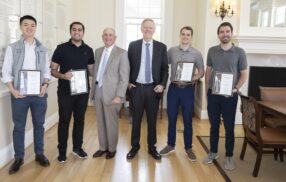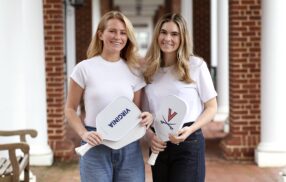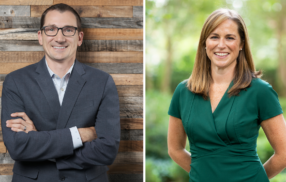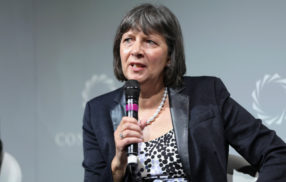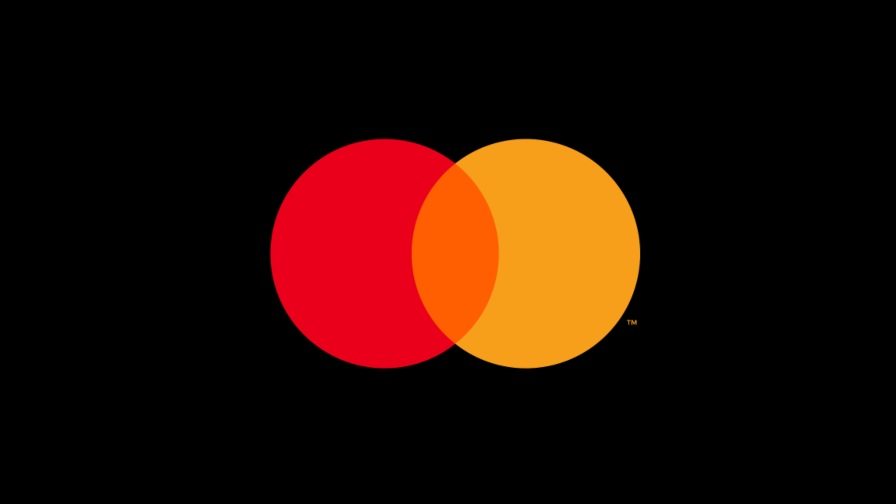
Mastercard CMO Shares Sensory Marketing Strategy With UVA Darden Students
By Dave Hendrick
Mastercard Chief Marketing and Communications Officer Raja Rajamannar says the amount of change in the marketing field in recent years has been “unbelievable,” with the manner in which brands try to reach consumers changing at an unprecedented rate.
Rajamannar, who recently spoke in Darden Professor Luca Cian’s “Consumer Behavior” class, said the history of marketing can generally be divided into five eras, which he termed 1.0 to the emerging 5.0.
- The initial 1.0 era was focused entirely on product marketing and based on the logic that if a company has the best product and can explain its benefits to consumers, the consumer will be likely to purchase.
- 2.0 brought in emotion, with companies realizing that “when you occupy someone’s heart, it is tough for someone else to displace you.”
- 3.0 was data-driven, with higher-level of accountability and return on investment.
- 4.0 incorporated the rise of social media and ubiquitous mobile devices, with brands becoming “part of the stream of consciousness.”
- 5.0—the emerging era—includes the previous iterations of marketing, which remain relevant, but reaches people in new and unprecedented ways as all devices become connected to 5G internet and new frameworks for delivery like drones and 3-D printing open entirely new avenues in the supply chain.
Rajamannar, who also met virtually with Darden’s Fintech Club, pointed to novel avenues such as smart speakers that have already ushered in new forms of marketing, but said the next wave of marketing would likely incorporate all five senses as brands look for ways to both cut through the clutter and reach consumers who spend huge amounts of time in advertising-free environments, such as Netflix.
Cian, whose doctoral dissertation was titled Multisensory Sort: A New Method to Explore Organizational and Brand Image, has long focused on the emerging field of sensory marketing.
Rajamannar walked students through his journey in sensory marketing with Mastercard, efforts that have involved tactics ranging from consolidating a sprawling family of logos into a single digitally optimized presentation of the two interlocking Mastercard circles to putting significant resources into creating a 30 second melody consumers would instantly associate with Mastercard. Establishing the parameters for the tune, Rajamannar said it needed to be “pleasant, neutral and hummable,” and “versatile and comfortable in all environments.”
“I had to go through literally 2000 melodies before landing on the right one,” Rajamannar said of the company’s “sonic signature,” which shows up in some fashion in all of the company’s ads. The company has also worked with composers to translate the song across genres — including jazz, EDM and country — and geographies, with unique versions of the same tune rolled out for multiple countries.
The company is also putting out pop music incorporating elements of the tune it hopes will connect with consumers, releasing a single off of a forthcoming record album in January.
On the taste front, the company has opened a number of restaurants around the world through its Priceless table initiative, and aims to eventually be the world’s largest fine-dining chain, Rajamannar said.
Then, there are the company’s sensing initiatives, which Rajamannar described as involving “understanding the psyche just below the surface.” The CMO cited its True Name initiative, which gives transgender individuals a card with their preferred name, for instance.
The ROI on the varied initiatives may not be as clear as an internet search ad, but Rajamannar said the impact has been clear, particularly on awareness, noting the company’s sharp rise in the BrandZ Top 100 Most Valuable Global Brands list, for instance
“We have been building the brand meticulously,” said Rajamannar
The University of Virginia Darden School of Business prepares responsible global leaders through unparalleled transformational learning experiences. Darden’s graduate degree programs (MBA, MSBA and Ph.D.) and Executive Education & Lifelong Learning programs offered by the Darden School Foundation set the stage for a lifetime of career advancement and impact. Darden’s top-ranked faculty, renowned for teaching excellence, inspires and shapes modern business leadership worldwide through research, thought leadership and business publishing. Darden has Grounds in Charlottesville, Virginia, and the Washington, D.C., area and a global community that includes 18,000 alumni in 90 countries. Darden was established in 1955 at the University of Virginia, a top public university founded by Thomas Jefferson in 1819 in Charlottesville, Virginia.
Press Contact
Molly Mitchell
Associate Director of Content Marketing and Social Media
Darden School of Business
University of Virginia
MitchellM@darden.virginia.edu



